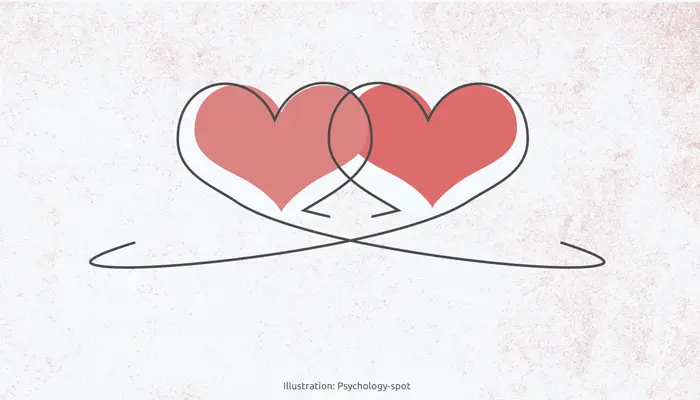
What is love? Perhaps this is one of the questions that at some point we all have asked ourselves but for which we do not have answers. This is precisely the theme that cuts across the world-famous work of Erich Fromm: “The Art of Loving.” How much truth is there in its pages? Much and little at the same time, it depends on how we want to understand it. For “scientified” psychologists, allow me the neologism, it can be a highly criticizable work but the truth is that if we read it with an open mind position, much of it will result interesting.
Perhaps one of Fromm’s most interesting ideas lies in his conception of mature love. In contrast to symbiosis, mature love implies a union on condition of preserving one’s identity, the individuality. Love contains the paradox of two beings that become one but continue to be two. Mature love translates into the correspondence of common spaces maintaining their own spaces, it is the delivery without conditions and without the loss of oneself.
However, love is not a simple feeling. It is also an active concern for the life and growth of the other person. The essence of love that Fromm proposes to us is also to “work” for something and make it grow. Thus, it reveals another of its facets: responsibility. Understood as concern for the other and the assumption of his actions; being attentive to his physical and mental needs.
But responsibility can quickly degenerate into dominance and possessiveness if we don’t exercise respect. Respect means worrying about the other person developing as he is; not trying to exploit him but to promote his freedom to the same extent that we promote ours. Loving is not merely a powerful feeling, it is a decision and also a promise. Love is based on full trust in the other person and in total dedication.
There are different types of love: Child love that is guided by the principle: “I love because they love me.” On the contrary, mature love is governed by the principle: “They love me because I love.” Immature love says: “I love you because I need you”, mature love expresses: “I need you because I love you”.
Erotic love is the desire for complete union and is the one that is most misleading since it can be confused with the simple and fleeting infatuation or with sexual desire. The latter may be stimulated by anguish, loneliness, the motivation of the conquest …
Since most people relate sexual desire to the idea of love, it is easy to make the mistake of believing that we love when we desire physically. Love can inspire the desire for sexual union; in such a case, the physical relationship must be full of tenderness. On the contrary, sexual attraction creates, for a moment, the illusion of union but it is just as fleeting. The study of the most frequent sexual problems: frigidity in women and erectile disorders in men, shows that most of the time the cause does not lie in a lack of knowledge of the proper sexual technique but in the inhibitions that prevent them from relating.
Love begins when the person feels that the needs of the other are as important as his. When we “give”, for the immense pleasure produced by the action of “giving” the best of ourselves and not for the fact of expecting something in return.
Another aspect that is highlighted in this work is the idea that love is not free from conflict. But when conflicts are manifested in two people who love each other, they are not destructive but help to clarify their points of view and facilitate a deeper understanding.
Love is an active power that crosses all the cultural barriers that may exist between people. Love enables us to overcome our isolation and loneliness. Love is a way for growth.
Then draw your own conclusions about this book.



